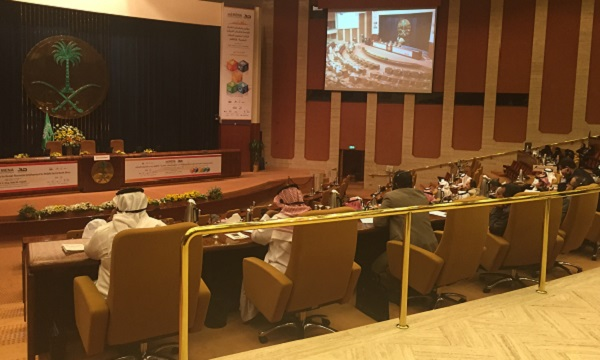ATD Blog
Creating Value Through Talent Development in Saudi Arabia
Thu Mar 26 2015

I’ve just returned from speaking in Riyadh at ATD’s third Middle East North Africa (MENA) conference. Although attendees came from across the region, there was a heavy focus on Saudi Arabia itself; we had several presentations focusing on the need to develop the country’s talent and human capital.
The Case for Human Capital Development
In one session, the Human Resource Development Fund (HRDF) explained that Saudi Arabia suffers from high unemployment, especially in the north of the country and among youth and women.
Additionally, the majority of the jobs available are in the public sector, because 81 percent of the jobs in the private sector are held by expats. This availability is fueled by many Saudis’ education choices, with most people wanting to focus on human, social, and Islamic tracks rather than vocational skills.
Saudi Arabia and the wider region also need to respond to disruptions affecting the whole world, such as the new technologies Tony Bingham spoke about, and more local issues, including a much reduced oil price.
All of this requires organizations to be more innovative in their approach, and as Tony indicated, this requires talent development professionals to ensure managers and employees think and act differently.
In my session, I tried to respond to this agenda by talking about the organization’s role in developing human capital. This is important to the country as well as to its companies. Despite great initiatives by the Ministry of Labor, HRDF, and education and training providers, organizational talent development can still have the most substantial impact on the country’s overall level of human capital.
Define Your Outcomes
Companies invest in human capital for three main reasons:
There is usually a need to meet some national requirement, such as quotas for the employment or training of women or nationals.
There is often a broader agenda supporting corporate social responsibility, or more importantly in this region, the Islamic worldview.
Investment in a company’s human capital can have a significant impact on national human capital. If all companies provide the development that their people need, then the country will be provided with much of the human capital it requires, too.
However, for human capital initiatives to be successful, organizations must develop a better understanding of the human capital they need. This was the main reason I was pleased to attend sessions on talent analytics and return on investment (ROI) led by Jenny Dearborn of SAP and Jack Philips of the ROI Institute, respectively. The better we get at quantifying the value of our human capital (or the cost of its absence), the more that the right level of investment in talent development is likely to take place.
A video of my session, Developing Human Capital, will be on the ATD MENA site soon (check back in a few weeks). But to summarize it briefly, I suggested that organizations and all talent management and development practitioners need to focus on the outcomes they’re trying to create. These outcomes should include social capital as well as human capital, at least when working in a highly communitarian national culture like Saudi Arabia’s. Once the desired outcomes are clear, an organization can select or innovate the appropriate talent management and development processes that will lead to these outcomes.
Be Focused on People, Not Just Data
I also suggested that we need to create as well as add value. That is, organizations should think about the business impact they could create from improvements in human and social capital, not just how these outcomes will meet existing business goals. Creating value requires a human perspective on talent management and development based upon deep insights into psychology, sociology, and anthropology, not just ever greater business skills.
This suggestion seemed popular in Saudi Arabia, where I think people-focused approaches are already widespread. It’s why I don’t necessarily agree that some of the sessions, including mine, were a bit high level for the audience and the state of talent development maturity in Saudi Arabia. Given that most managers in the region still seem to associate talent development with training, it may not be possible to leap into massive open online courses and other new talent development activities, as we can in the United Kingdom, the United States, and some other areas of the world. But there’s no reason why talent development professionals there can’t focus on outcomes, create new value, and make a serious contribution to their country’s requirements for human capital. There may even be areas in which they can leapfrog over our progress in the West, because they haven’t had some of the same less-positive experiences that we have had here (for example, poor experiences with early e-learning.)
It’s also why I disagree with Jenny’s suggestion for HR to become more like sales: data driven. Her suggestion is based upon the fact that CEOs would usually rather appoint someone from sales than HR to the chief human resources officer position. I think we need to help CEOs understand why talent development, and organizational management in general, needs to be more people focused; consequently, measurement, analytics, and ROI may be both less accurate, and less valid, than they would like them to be.
This doesn't mean that we can’t articulate the value of human capital, which would mean continuing to underinvest in human capital. But it does mean that we may need to supplement big data with qualitative analysis.
So given the need for psychology, sociology, anthropology, and qualitative analytics, Saudi Arabia should find value from its focus on human and social sciences, in the HR area at least.
